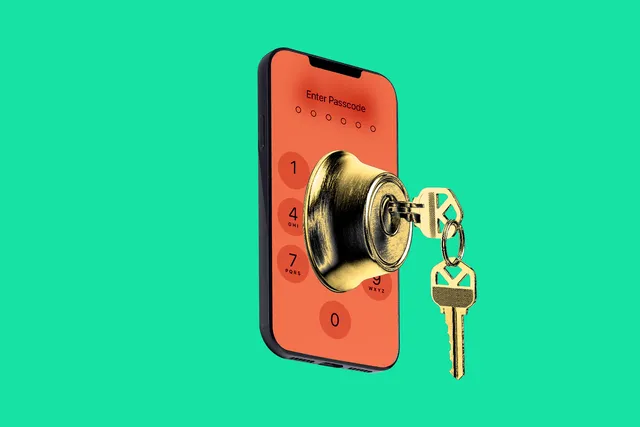FBI and CISA officials said Tuesday that attackers connected to Chinese group Salt Typhoon could still have access to US telecommunication networks.
In an urgent bid to counter the lingering effects of a major cyberattack on U.S. telecommunications networks, federal officials are urging Americans to turn to encrypted messaging and calling services. This recommendation, aimed at shielding private communications from foreign hackers, comes after revelations of a massive breach tied to Chinese hacking group Salt Typhoon.
The breach, first reported in October, targeted major telecom providers such as AT&T, Verizon, T-Mobile, and Lumen Technologies, and has raised serious concerns about national security. Among the victims of the hack were individuals tied to high-profile campaigns, including those of former President Donald Trump and Vice President Kamala Harris, according to The Wall Street Journal.
While investigations are ongoing, federal agencies are warning that the hackers may still have access to sensitive information, making it crucial for Americans to adopt encrypted communication tools to protect their privacy.
What Was Breached? A Closer Look at the Attack
Speaking with reporters this week, officials from the FBI and the Cybersecurity and Infrastructure Security Agency (CISA) shared chilling details about the scope of the attack. Hackers reportedly accessed call metadata—such as the phone numbers involved in calls and timestamps of conversations—as well as, in some cases, the live content of phone calls themselves.
In addition to phone calls, the breach may have exposed unencrypted text messages, putting a vast amount of personal and professional data at risk.
“The scale of the attack is immense,” said Jeff Greene, CISA’s executive assistant director for cybersecurity. “The reality is that we don’t have a timeline for a full eviction of malicious actors from the affected systems.”
Why Encrypted Messaging Is Now Essential
To combat the fallout from this breach, federal officials are recommending that Americans use apps offering end-to-end encryption, such as Signal and WhatsApp. These tools ensure that only the sender and recipient can access the content of their communications, effectively locking out hackers—even if they manage to intercept the data.
“Encryption is your friend,” Greene emphasized during the briefing. “Whether it’s for text messaging or voice communication, encryption can make intercepted data unusable to adversaries.”
End-to-end encryption works by encoding messages so that they can only be decrypted by the intended recipient. This differs significantly from traditional telecom services, where texts and calls are often transmitted without robust protections, leaving them vulnerable to interception.
A Shift in Tone from Law Enforcement
The FBI’s support for encrypted apps marks a notable shift in tone. Historically, the agency has expressed reservations about encryption, arguing that it hampers law enforcement’s ability to access critical evidence during investigations.
For example, the FBI was involved in a highly publicized standoff with Apple following the 2015 San Bernardino shooting. Investigators demanded access to the encrypted contents of the shooter’s iPhone, but Apple refused, citing broader concerns about user privacy and the potential for creating vulnerabilities in its systems. The FBI ultimately bypassed Apple to access the data, but the incident underscored the tension between privacy and security.
While the FBI now acknowledges the importance of encryption in thwarting foreign hackers, it continues to advocate for a middle ground. The agency’s official stance calls for tech companies to design systems that allow law enforcement to access encrypted data under a U.S. legal process. However, privacy advocates and tech companies argue that creating such “backdoors” could undermine the very security encryption is designed to provide.
Who’s Behind the Breach? Understanding Salt Typhoon
The attack on U.S. telecom networks has been attributed to Salt Typhoon, a sophisticated Chinese hacking group also known as Bronze Silhouette or APT41. This group has been linked to multiple high-profile cyber campaigns targeting governments, businesses, and individuals worldwide.
The implications of such breaches are far-reaching. Beyond compromising the privacy of individual Americans, the attack threatens the integrity of critical infrastructure and exposes vulnerabilities in systems relied upon by millions daily.
What Can You Do to Protect Yourself?
In light of these revelations, protecting your digital privacy is more critical than ever. Here are some steps you can take:
- Switch to Encrypted Messaging Apps
Apps like Signal, WhatsApp, and Telegram (in secret chat mode) offer end-to-end encryption for both text and voice communication. Make them your default for sensitive conversations. - Avoid SMS for Sensitive Information
Traditional text messaging is highly vulnerable to interception. If you need to share personal or confidential information, use encrypted services instead. - Update Your Devices and Apps
Keeping your software up-to-date ensures you have the latest security patches and protections against known vulnerabilities. - Monitor Your Call and Message Logs
Be vigilant about unusual activity in your phone records, such as calls or messages you didn’t initiate. - Educate Yourself on Cybersecurity Best Practices
Stay informed about the latest threats and take proactive measures to secure your data.
A Wake-Up Call for the Future
The attack on U.S. telecom networks is a stark reminder of the vulnerabilities inherent in modern communications. While encryption offers a powerful line of defense, the broader challenge of securing critical infrastructure against determined adversaries remains a daunting task.
For now, federal officials are sounding the alarm: the tools to protect your privacy are available—use them. As Greene succinctly put it, “Even if the adversary intercepts your data, encryption ensures they can’t use it.”
By embracing encrypted technologies, Americans can take a crucial step toward safeguarding their communications in an increasingly uncertain digital landscape.










